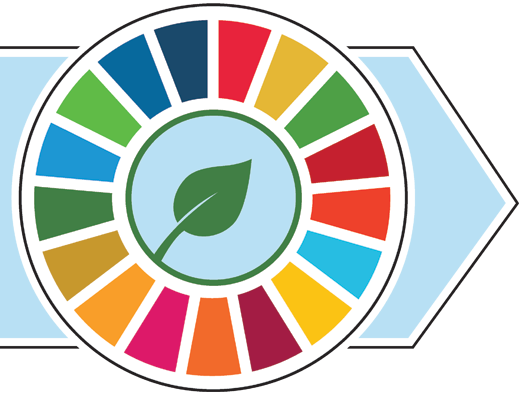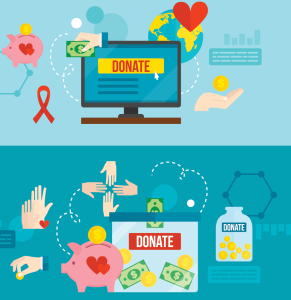While many wait to see how President Donald J. Trump’s decision to withdraw from the Paris Climate Accord impacts global efforts to combat climate change, the beat goes on for members of the nonprofit sector. Rather than adjusting objectives to meet the new administration, partnerships have been created with local government and industry to forge ahead.
We Are Still In has been a rallying point for entities in all three sectors following Trump’s withdrawal. The movement might have picked up steam in recent weeks and months, but the foundation dates back to late 2015, according to Lou Leonard, senior vice president of climate change and energy for World Wildlife Fund – United States (WWF-US). WWF-US has in recent years operated with a two-pronged attack when it comes to climate change. For one, it has worked with the private sector and local governments to advocate why actions such as switching to renewable energy make sense from a business perspective. Secondly, it has worked with the 100 countries it operates in to try and draw agreement around global efforts to combat climate change.
The lead up to the Paris Climate Accord, an international effort to among other things limit the global temperature increase to 1.5 degrees Celsius this century, was a marriage of WWF-US’s two approaches. WWF-US helped organize a letter of support for the Paris Climate Accord among major business leaders in late 2015, that ran as a full-page ad in The New York Times. After Trump was elected and it seemed as if withdrawing from the agreement was a true possibility, WWF-US and partner entities such as the Center for Climate and Energy Solutions worked with business leaders to garner public support for staying in the agreement. WWF-US and its partners went back to the well when Trump made his final decision.
“Because you had these companies coming out publicly and say that they support it, it became quite natural for them to come out and respond when the president made his final decision,” Leonard said. Within 72 hours of Trump’s June 1 announcement, the We Are Still In movement had drafted a statement with 1,200 dignitaries signed up -the total increasing by about 100 in the days following, Leonard said. The number as of this writing stands at more than 2,100.
To get to that number, We Are Still In organizers worked with the U.S. Climate Alliance -a collection of a dozen state governments still supporting the accord. It also worked with Climate Mayors – more than 300 municipalities that will remain committed to climate goals. Success has also been found in trying to create broad partnerships with industry, according to Leonard. Giving businesses a single ask, such as signing on with We Are Still In, makes it easier to create buy-in, he said.
WWF-US has also worked to facilitate dialogue between organizations, cities, and businesses to answer questions and concerns partners might have before signing on.
State and local governments have been key to the Sierra Club’s post-withdrawal efforts, according to Jonathon Berman, senior press secretary. Efforts have been made to push toward things such as getting mayors to commit to 100 percent clean energy for their municipalities and to cut down on fossil fuels. When Trump was elected, Sierra Club leadership made the decision to shift more toward local engagement, believing that more headway could be made there while transitioning work on Capitol Hill to a more defensive stance against federal policies.
Unlike when President George W. Bush enacted environmental policies with which Sierra Club and partners disagreed, there is a greater appetite to move forward with climate initiatives in contrast with Trump’s moves, Berman said. Trump’s decision energized local officials, a large portion of the Democratic Party, and Sierra Club supporters.
During the 24-hour period prior to Trump’s announcement, the Sierra Club requested that supporters call the White House to share their thoughts. That resulted in 55,000 calls, a number that organizations typically have to pay to reach but was achieved simply by posting a telephone number on social media, he said. Though a full analysis has not been conducted, Berman said that the Sierra Club received tens of thousands of small donations after Trump’s withdrawal, an uncharacteristically high portion of which came online.
Other focuses that the Sierra Club has undertaken in recent months include the Trump administration’s delayed implementation of public health standards set under President Barack Obama, actions that Sierra Club leadership believes are illegal. The Sierra Club is litigating to push those standards through in a process that will also include public comment periods and campaigning, Berman said. Additionally, organization leadership has sought to seize the headlines Trump’s decision has drawn to engage and educate the general public on climate change. A statement, for instance, was prepared and ready to go for when Trump first made his announcement.
“They created an opportunity to educate the public by making such a wrong-headed and unpopular decision,” Berman said of the Trump administration. “That opportunity still exists… I think the Paris announcement continues to be an organizing opportunity on climate change. It simplifies this complicated narrative around energy. It allows us to have a conversation where Paris is symbolic of administrations failure on climate change.”

“Within 72 hours of Trump’s June 1 announcement, the We Are Still In movement had drafted a statement with 1,200 dignitaries signed up. — Lou Leonard

Berman stressed that the U.S. cannot formally exit the accord for two years. Sierra Club leadership has communicated with foreign colleagues and governments that the transition toward clean energy has already taken over the U.S. and is no longer something that an administration can halt. Years ago, companies were faced with decisions as to what to do with coal plants. Today, the clean energy industry such as wind and solar is growing to the point where it has become a structural change in the U.S. economy, Berman said.
In Brussels, Belgium, home of Friends of the Earth Europe (FOE), news of Trump’s decision was expected, according to Susann Scherbarth, climate justice and energy coordinator. Contact with colleagues in the U.S. coupled with media reports led FOE to expect the withdrawal as early as February.
“We believe that under Donald Trump the United States is becoming increasingly isolated from the global community,” Scherbarth said via an email. “In these conditions civil society needs to come together more not less.”
There is no serious concern that additional organizations will pull out of the agreement, Scherbarth added. At present, 153 of 197 participating bodies have ratified the Paris Climate Accord, a total that does not include European nations such as the Netherlands, Switzerland, Serbia, Czech Republic, or Turkey. While additional efforts are needed, Scherbarth noted that the other 19 G20 member governments have responded to the withdrawal by reaffirming their commitment to the agreement.
FOE’s current focus is to push the words of the Paris Climate Accord to actual transformation of energy systems. Transitioning to 100 percent renewable, non-nuclear, non-fossil-fuel energy in Europe by 2030, garnering support for an alternative sustainable food, farming, and land use system, and strengthening the involvement of FOE’s 33 national organizations are among additional long-term goals.
Trump’s tenure has led to closer contact and collaboration between FOE’s European, International, and U.S. offices, Scherbarth said, something that predates the Paris Climate Accord decision. The U.S. office has explicitly requested international solidary with resistance to Trump’s policies and the European office has followed suit in recent months. Mobilizing a protest against Trump during a May visit to Belgium is one such way FOE has shown solidarity with American colleagues. FOE is also working closely together with the United Nations Framework Convention on Climate Change and have sought to spur European governments to place economic and political pressure on the U.S. to fulfil its climate obligations, according to Scherbarth.
Back at WWF-US headquarters, efforts have not been made to fundraise or actively oppose Trump, according to Leonard, adding that We Are Still In fits WWF-US tonally.
“World Wildlife Fund is never going to be an organization that is going to take a combative or angry tone or approach to engaging with partners,” Leonard said, distinguishing the organization from “Resistance” movements. “That just isn’t part of our brand. Our brand is solutions-oriented, science based…We want to be powerfully in this space, but not make it about being against the president. It’s not about that for us. It’s about the climate agenda.”
WWF-US leaders have also declined to take the position that support in Washington, D.C., is unneeded. The long game is to partner with entities outside of Capitol Hill to create a space for moderates and Republicans to feel comfortable from a political perspective to engage on climate change. Charitable foundations have been one of the most rapidly growing subgroups showing support for We Are Still In and economic leaders, too, carry weight in the political sphere.
We Are Still In boasts membership representing $6.2 trillion in the U.S. economy, according to the organization. The business community represented would be a top global economy if it was a nation. While the long-term impact of the Trump Administration’s actions are a ways from being known, Leonard said that it is WWF-US leadership’s hope that that level of support.
“Given where D.C. is, because World Wildlife Fund has been a part of this effort, that has helped us with colleagues in other countries because it shows that we’re trying to be impactful and creative with these solutions,” Leonard said. “What I’ve leaned over the years working in a global organization is that you really have to understand that every country is challenging in its own way and that you have to work with what challenges and politics you have as they exist.”











